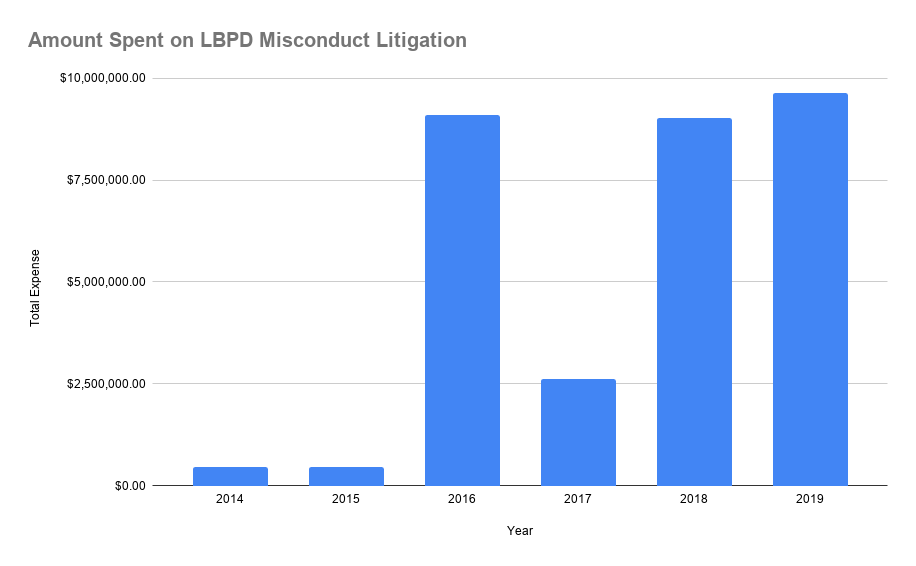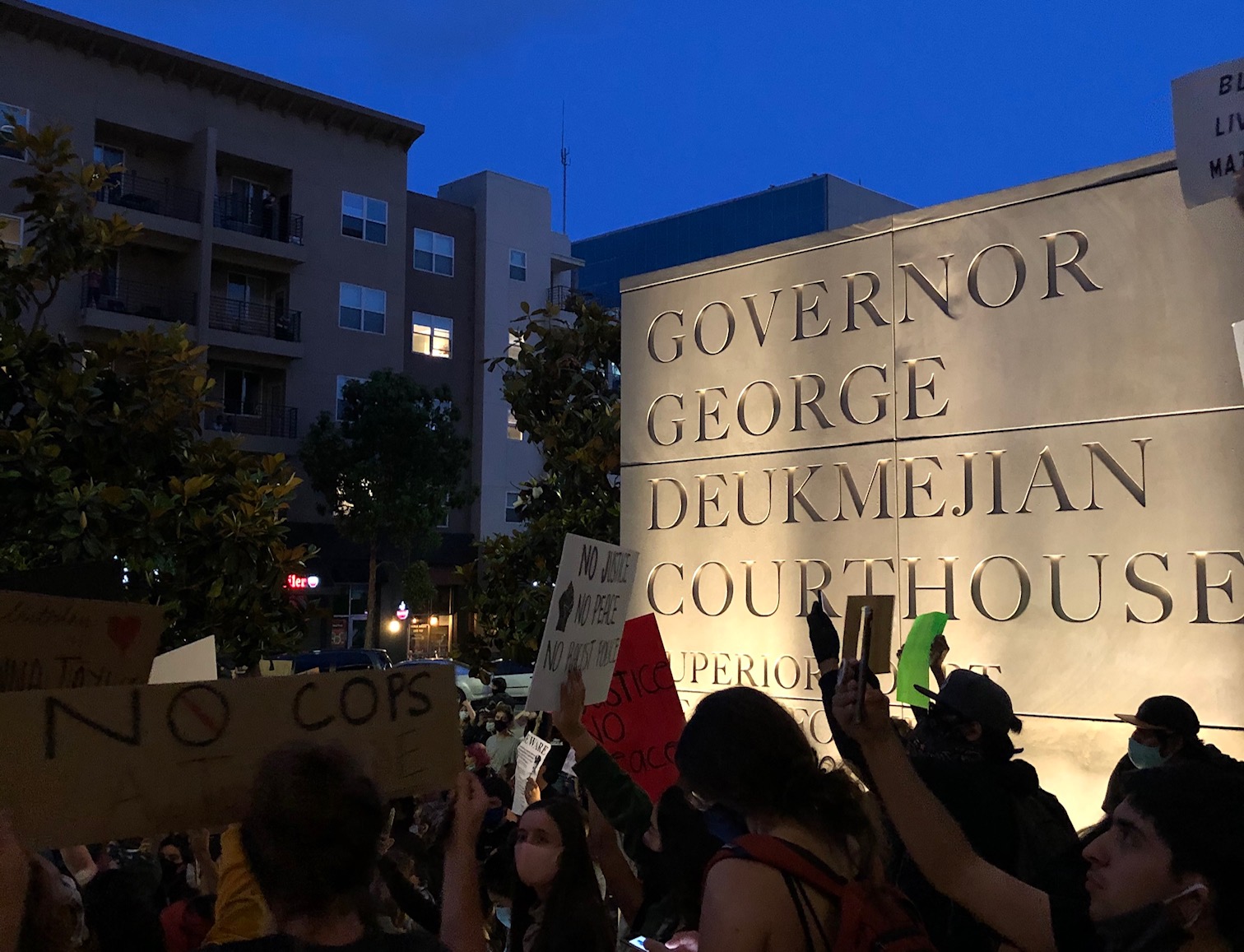Breaking Down the LBPD Litigation Data
10 minute readAccording to data released Wednesday, Long Beach has spent $31.5 million in settlements, verdicts, and legal fees fighting police misconduct lawsuits filed against the police department since 2014.
Councilmember Jeannine Pearce said in a Facebook post that the data was turned over to the council after she requested it from city staff on March 29.
The list includes 61 police misconduct cases related to incidents dating as far back as 2008, with a variety of outcomes, including settlements, dismissals, and jury verdicts. In each of the cases, plaintiffs alleged either an unjustified police shooting, an in-custody death, or use of excessive force by police.
Calls to reform, defund, or even dismantle police departments have grown across the country, including in Long Beach, since the police killing of George Floyd in Minneapolis on Memorial Day.
According to figures from Mapping Police Violence (MPV), the LBPD killed 24 people between 2013 and 2018. An MPV analysis shows that Black people are 3.5 times more likely to have deadly force used on them by Long Beach police than their White counterparts.
Of the 602 civilian complaints related to Long Beach police misconduct filed between 2016 and 2018, only one in every 201 was ruled in favor of the complainant, according to MPV. A complaint is usually the first step to imposing disciplinary consequences on an officer.
Tomisin Oluwole
Fragmented Reflection I, 2021
Acrylic on canvas panel
24 x 30 inches
Click here to check out our interview with Tomisin Oluwole, a literary and visual artist based in Long Beach.

Instead of gunking up our site with ads, we use this space to display and promote the work of local artists.
On Thursday, City Manager Tom Modica sent a memo to the City Council showing that complaints filed against police have nearly halved between 2015 and 2019. The memo also shows that police use-of-force incidents have trended down in that same period. The LBPD reported 340 use-of-force incidents in 2019, a decrease from 493 in 2015.
Yet, the amount of money the city has paid out for police-related litigation increased 20-fold from 2015 to 2019, according to the LBPD litigation data. Police officials have said this is because juries are issuing higher verdicts. The steep increase may also be partly explained by the lag time between when an incident occurred and when the case was closed, which was on average about three and a half years, according to the city’s data.

Meanwhile, another police misconduct lawsuit could be on the horizon. Earlier this week, a woman filed a claim against the city alleging that a piece of her finger was shot off by a “less-lethal” round fired by officers during the May 31 anti-police brutality protest downtown. A videographer appears to have caught the incident on camera. She is seeking damages of over $10,000, according to the claim, though if she pursues a lawsuit, that amount could be much higher.
Neither the data on use-of-force incidents or police misconduct lawsuits provided by the City included demographic information. We broke down the LBPD litigation data below. You can also download the data at this link.







Additional research by Kevin Flores.


 estherkang122@gmail.com
estherkang122@gmail.com




